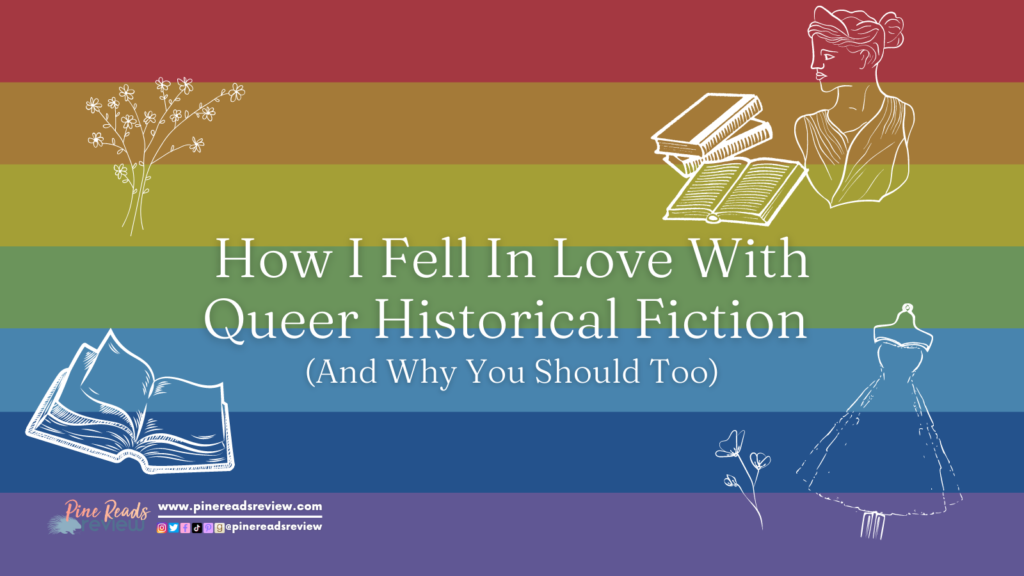
It all started with a cardboard box, my sophomore year history class, and a powerful fixation on a particular LGTBQ+ figure: cryptanalyst and mathematician Alan Turing. I was recreating a makeshift model of a machine that he’d called the Bombe—an incredible device that was essential in winning the Second World War (the real one, not my cardboard recreation). Its purpose was to decode the encrypted messages created via the enigma machines that the Germans used to communicate. The cipher changed with every new day, and decoding these messages was no easy task.
While researching for my project on Turing, I discovered something that left me breathless: it is estimated that the creation of the Bombe shortened the war by two to four years. I couldn’t comprehend the scale of further tragedy that had been prevented by Turing; this disastrous war which had already cost the lives of millions might have cost millions more in that amount of time. That fact left me feeling immensely grateful. I imagined a world where Turing and his invention had never existed: many of us today would not exist either, our bloodlines cut short half a century earlier in the calamity of war.
I was nearly moved to tears during my final presentation of my cardboard Bombe. What’s especially odd about this is that I’d never cared much for history before, and I had absolutely no interest in cryptology. In fact, I only narrowly passed math year after year. And yet, here I was, so stirred by Turing’s story. Why? Certainly, the sheer scale of his life-saving work was something to be moved by, but there was another factor too: Alan Turing was a gay man, and to know that a queer person had essentially saved the world brought me an immense amount of pride. Concurrently, I felt a lot of anger at how his life was cut short by the persecution he faced and even more at how his name was missing from every history textbook I’d ever read in class.
From that point on, I could not ignore the glaring gaps in my education where the names of LGBTQ+ heroes belonged. I decided that it would now be my duty to create works of fiction that called attention to LGBTQ+ history to say: See, we’ve always been here. I felt that in order to write queer historical fiction, I would need to know all there is to know about queer history. The summer after my junior year, I was able to visit Bletchley Park, where Alan Turing had done all his work as a cryptanalyst, and I couldn’t have been more in awe as I walked up and down the rows of displays. I read nonfiction books and articles on other important LGBTQ+ figures in my spare time. I often flipped through Queer, There, and Everywhere trying to memorize all their names. I also delved into fictional works with queer representation, and I was deeply inspired, particularly by Mackenzi Lee’s The Gentleman’s Guide to Vice and Virtue series. Also notable was a collection of short stories called All Out, which featured pieces from a multitude of queer authors, including Lee.
A year after my Bombe project, I was asked to submit a short play to our school’s upcoming theatre festival. This was huge. Despite the fact that Las Vegas Academy had long been a performing arts school with an acclaimed theater program, the idea that we might platform student-written work was new. Thrilled by the opportunity, I wrote with every spare moment I had leading up to the submission date and completed a play called November on Castro Street. The play followed a young couple living in San Francisco at the time of Harvey Milk’s rise as an LGBTQ+ leader. Milk’s story had been my latest fixation, and I couldn’t stop picturing the lights at his vigil, Castro Street all aglow—and so I put pen to paper, and the play was accepted into the festival. The feedback I got after the show was incredibly affirming. Many of my peers told me that they had felt seen by my writing. The experience of receiving a platform for my work confirmed to me that queer historical fiction was a meaningful and important endeavor to commit myself to. I haven’t stopped since.
Queer historical fiction is amazing because it covers a history which was swept under the rug for centuries upon centuries, and, therefore, has an abundance of unexplored content to pull from. While the queer community is not a group unique to the modern age, our presence in works of fiction is new. Of course, LGBTQ+ writers of the past have implemented the queer voice into their work in subtle ways, but for the first time ever writers of today can make LGBTQ+ themes apparent in their work. It’s a beautiful opportunity that I will never take for granted.
PRR Writer & Social Media Manager, Brooke Gorman